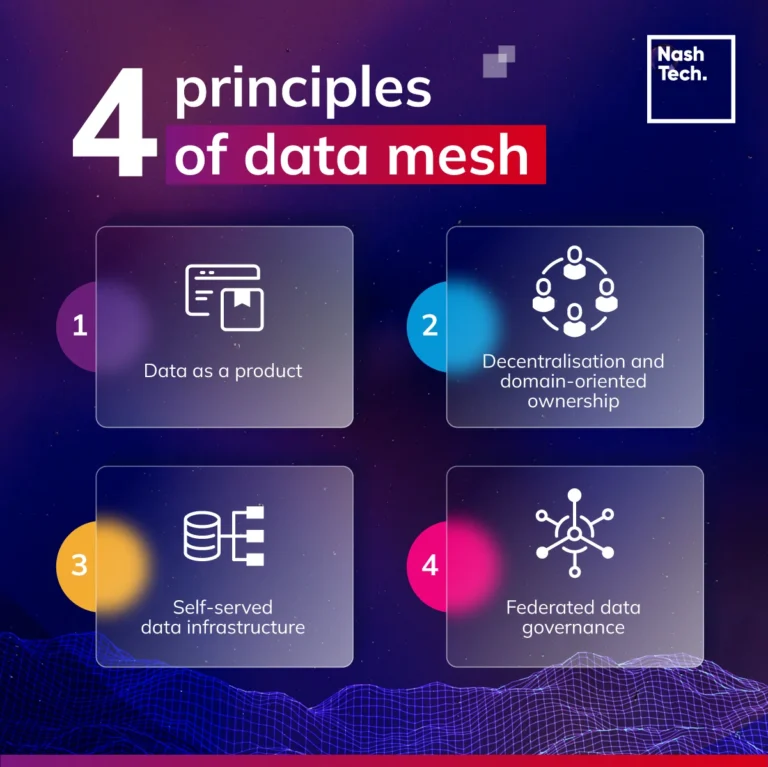- Solutions
Our solutions
Digital solutions combining strategy, technology, automation and people.
Technology advisory
Navigate the fast-changing world
Cloud engineering
Transformational change at scale and speed
Data solutions
Realise the untapped potential of data
AI and machine learning
Leverage your data assets
Application engineering
Optimise and grow your digital investment
Maintenance and support
End-to-end application management
Business process solutions
Manage business processes to reduce operating costs
Quality solutions
Independent testing for your systems and software
Digital experience platforms
Redesign your digital assets for the optimal customer experience
- Industries
Industries
We provide solutions tailored to your sector to assist you in identifying opportunities, realising value and opening up new markets.
Banking
Delivering next-gen banking solutions that drive growth
Healthcare
Patient empowerment, lifesciences, and pharma
Retail
Functional and emotional customer experiences online and in-store
Travel
Airlines, online travel giants, niche disruptors
Media and publishing
Content consumption for the tech-driven audience
Hi-tech and IOT
Real-time information and operational agility and flexibility to respond to market changes
Logistics and supply chain
Reimagine a supply chain that is more flexible and resilient to change
Education
Create an exciting and engaging digital experience for students and departments
Insurance
Streamline operations, expedite claims, and unlock new possibilities
- Our thinking
Our thinking
The latest updates to help future-focused organisations on the issues that matter most in business.
News
Keep up to date with company news and announcements at NashTech
Insights
The latest expertise and thought leadership from the NashTech and our clients
Resources
Expert guidance on everything from complex technological issues to current trends
Digital Leadership Report
Explore insights from the latest world's largest and longest-running study on technology leadership
- Case studies
- About us
About us
Find out what makes us who we are
Leadership
The diverse leadership team at NashTech
Nash Squared
A global professional services organisation with three key areas of focus
Vietnam 360°
Experience a 360 degree all-encompassing virtual tour of NashTech’s Vietnam offices
ESG
Discover our environmental, social and governance commitments
Diversity, equality and inclusion
Making diversity, equality and inclusion an integral part of our culture
Our locations
Discover our network of global offices, centres of excellence and innovation
- English
Unleashing the power of data mesh: revolutionising data management in the modern era

Short on time? Don’t miss out. Here are the key highlights:
- Data has long been a challenge for organisations as they struggle with quality, scalability, democratisation and autonomy
- Data mesh overcomes these challenges through its four principles; data as a product, decentralisation, self-serve data infrastructure and data governance
- The benefits of data mesh are plentiful — scalability, agility, autonomy, faster time to value, collaboration and quality
The data dilemma
Data has long been considered the lifeblood of modern organisations. It fuels analytics, informs strategy and enables businesses to gain a competitive edge. But, as data volumes have grown exponentially, many organisations have found themselves grappling with several common challenges: data silos, scalability, quality and democratisation. According to the Nash Squared Digital Leadership Report, only one in four digital leaders are confident that they are using their data effectively for insights and this can be owed in part to inefficient data management practices.
This is where data mesh comes into play. Data mesh is a groundbreaking concept born out of the necessity to tackle the challenges posed by the deluge of data. Coined by Zhamak Dehghani, data mesh is not merely a response to this data boom but a revolutionary approach to data management that challenges the long-standing centralised data architectures. In this article, we discuss the principles underpinning the data mesh approach, benefits that its application can bring to your organisation and example use cases.
Introducing the data mesh approach
At its core, data mesh advocates for decentralisation, treating data as a product and empowering domain-specific teams to take ownership of their data. It’s a philosophy that addresses the limitations of traditional data warehouses and data lakes by reimagining data management.
Principles underlying data mesh
If you should remember anything, it’s that the success of data mesh relies on four key principles. We take a look at these in more detail.

Principle one: data as a product
Firstly, data as a product. Data mesh encourages organisations to treat data as a product. This means shifting the perspective from viewing data as a mere resource, to treating it with the same care and attention as any other product. Just as a product undergoes rigorous development, testing and iteration, data should also be managed with a similar focus on quality and utility.
Principle two: decentralisation and domain-oriented ownership
Principle two, data mesh advocates decentralisation by distributing ownership and management of data from warehouse teams to cross-functional domain teams. Thus, allowing domain teams (such as marketing, procurement, etc) to access, understand and extrapolate data without relying solely on central data teams. Why should this interest a business leader? Because decentralisation enables faster domain-decision making and responsivity to business needs.
Principle three: self-served data infrastructure
We all know that there is a significant skill shortage pertaining to data literacy and analytics. The nature of self-served data infrastructure means that platforms should be easy to navigate and data easily accessible even by non-technical data users. As such, domain teams are able to build, maintain and evolve their own data products without the complications of navigating limited and overly technical infrastructures. This shift from a centralised model empowers teams to have autonomy over their own data, reducing bottlenecks and accelerating the delivery of insights.
Principle four: federated data governance
The final principle, data mesh introduces federated data governance, wherein domain teams collaborate on defining data standards, quality and compliance within their domains. This approach democratises governance, ensuring that those closest to the data are responsible for its integrity and quality.
Data mesh yields many benefits for organisations
The adaptability of data mesh makes it relevant and valuable across a wide range of industries, offering a pathway to more efficient data management and data-driven decision-making. When executed well, the data mesh approach presents a number of opportunities for organisations, relating to cost optimisation, enhanced data-driven insights and quality. This is because it encourages domains to take active responsibility in driving data value and in the end, organisational success. So how can data mesh benefit your organisation?
Improving data autonomy and collaboration cross-business
The nature of decentralised ownership grants your domain teams greater autonomy and control over their data, leading to quicker decision-making and better domain-specific insights. Moreover, this shared responsibility across your teams fosters a culture of collaboration, encouraging responsibility of data quality, analysis and outputs.
Increasing scalability and agility
The proliferation of IoT (Internet of Things) devices, 5G, social media and global internet has ushered in an era of unprecedented data generation. Billions of interconnected devices across industries are producing an overwhelming amount of data every second. Where traditional warehouses would fall short, data mesh is flexible and allows your organisation to scale efficiently by distributing data responsibilities and fostering innovation within domain teams. This agility is critical in responding to rapidly changing business environments.
Delivering faster time to value
The self-serve data infrastructure reduces bottlenecks by enabling domain teams to independently manage and deliver data products, accelerating the time to insights and value. Teams are able to access critical data faster and deliver faster outputs. In manufacturing for example, data mesh can optimise production processes by providing real-time insights into machine performance and product quality.
Enhanced data quality
According to a survey conducted by Capital One, 82% of organisations voted confusing or lack of clear data governance policies as a top challenge. With federated data governance, your domain teams become stewards of data quality, ensuring that data remains dependable and compliant within their domains.
Data mesh in action – a success story
Let’s take a look at an example of data mesh in action. An American multinational logistics corporation wanted to build a scalable data mesh, to enable them to view data as a product, rather than a by-product and solve challenges pertaining to legacy data management systems. Once transitioning to decentralisation, the organisation observed greater data quality and visibility of data issues as they arose. The data governance principles provided them with greater scalability and confidence to democratise access to trusted data. Since shifting to data mesh with NashTech, 5.5x more people are using data across the business regularly.
Partner with NashTech
At NashTech we can help you transition from rigid and centralised data management systems to the scalable data mesh approach. Our suite of tools, architecture and data experts can help your organisation overcome bottlenecks presented by traditional warehouses and get the most out of your data.
Drive your business forward with data-driven insights. Discover our data mesh solutions here.
Suggested articles

The art of human-AI collaboration: A case study in model improvement
For over 16 years, NashTech has been a trusted partner, providing data management solutions that have fuelled the exponential growth of our client’s online shopping platform. The approach has...

From rising above adversity to riding the wave of digital transformation in the education sector
Explore how NashTech help Trinity College London ride the wave of digital transformation in the education sector

Migrating and modernising the virtual learning environment to AWS for an enhanced experience
The migrated and modernised Moodle infrastructure means that The Open University can now take advantage of cloud benefits.
We help you understand your technology journey, navigate the complex world of data, digitise business process or provide a seamless user experience
- Topics:


